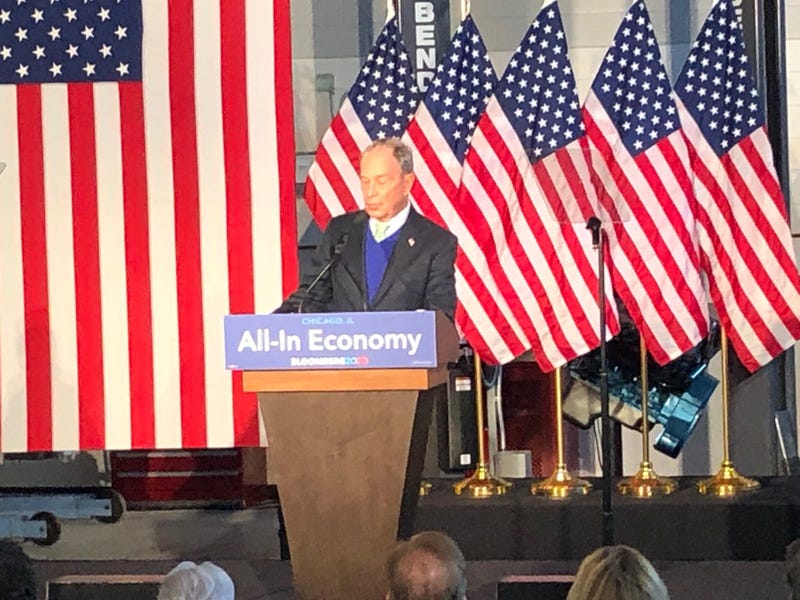
CHICAGO (WBBM NEWSRADIO) -- Billionaire and former New York City Mayor Michael Bloomberg made a presidential campaign stop Wednesday in Chicago, speaking at Olive-Harvey College on the city’s South Side.
He was there to talk about the economy, jobs, and the President.
“The U.S. economy is working just fine for people like me, but it is badly broken for the vast majority of Americans,” he said.
He talked about the rich getting richer.
“The President said this is the greatest economy in the history of America. Well, yeah, the stock market is at an all-time high. But almost half the country doesn’t own any stocks and the top 10 percent own about 85 percent of the market, so nearly all of the gains from the market are going to a select few," Bloomberg said.
He talked about the record low unemployment.
“Fifty-three million Americans, nearly half of all the workers are only making an average of $10.22-per-hour and earning $18,000 a year before taxes. That is not enough to escape poverty, no less raise a family," Bloomberg said.
The underpaid, the laid-off, the cities, small towns, and rural areas.
Bloomberg said, President Trump "promised to fix the problems, but instead I think he has made them worse. He has broken promise after promise.”
The tax cut, benefiting people like him, he said, and losses in the steel and auto industries and the tariffs and trade wars that have adversely affected American farmers.
Bloomberg said he'll take on President Trump on the economy and he "wont let him get away with selling the American people more empty promises."
He noted the President’s recent trip to Chicago.
“As he usually does, he equated immigrants with criminals. He often does that and it’s become almost normal, but I’ve got to tell you its not normal and we can’t let it become normal," Bloomberg said.
Bloomberg met earlier with Mayor Lori Lightfoot hoping for, but not getting a commitment for an endorsement.
Many will remember that Bloomberg entered local politics when he financed the proponents of the hated soda tax that would later be repealed.
